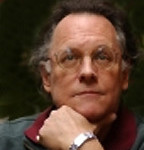
Open Education, efficiency, collaboration and management
Ben Janssen [has] made an interesting remark, as Ben often does. In his view, Open Education is not only a public good, but can also be used as a communication channel. As he stated:
“in my work as an external consultant I often find that departments within an organization are working on the same projects, starting the same pilots and the same programs”.
Even over organizations he sees the same phenomena: organizations who work on the same projects without knowing what happens a stone throw away.
Continue reading “Frank de Langen: Open Education & Open Business”




